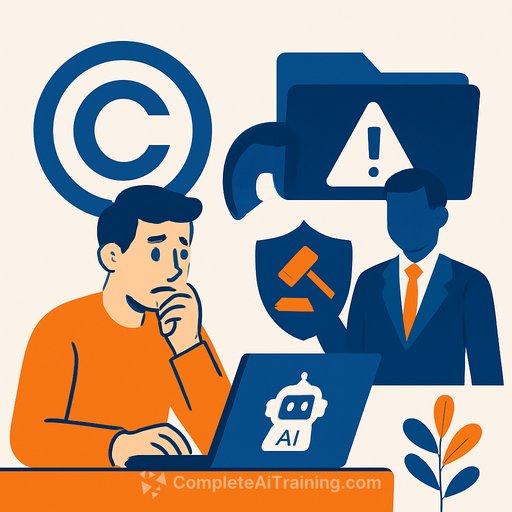Using AI at Work Could Land You in Legal Trouble
Artificial intelligence is everywhere, promising to make work easier and faster. But behind the hype, there are serious risks—especially legal ones—that most people don’t consider. If you use AI tools for creating graphics, press releases, logos, or videos at your job, you might be exposing yourself and your employer to costly lawsuits.
Why AI Use Can Lead to Lawsuits
Most commercial AI models are trained on massive collections of copyrighted material. That means when you ask AI to generate content, it might unintentionally copy or closely mimic protected work. Take Nintendo’s Mario, for example. If your AI-generated mascot looks even a little like Mario, you could find yourself on the receiving end of a lawsuit from Nintendo, a company known for aggressively protecting its intellectual property.
Legal experts warn that attorney fees can quickly balloon into six-figure amounts, far outweighing the cost of simply licensing images or content the right way. One intellectual property lawyer pointed out that you might face $150,000 in legal fees for something that could have cost $1,500 to license.
Current Legal Actions Against AI Companies
Right now, lawsuits are mostly targeting AI startups and platforms rather than individual users or their employers. Media companies have filed at least a dozen lawsuits against AI platforms, accusing them of using copyrighted news articles without permission. This content is the backbone of many AI tools, and publishers argue that AI firms profit from their work without compensation.
Big names like Disney and NBC Universal have also sued AI companies such as Midjourney for allegedly creating images that closely resemble copyrighted characters and movie scenes. Examples include AI-generated images that look like Marvel’s Iron Man or Warner Bros’ The Dark Knight.
Why This Matters for Everyday Workers
You don’t have to be an expert in copyright law to get caught up in this. Many workers use AI tools as part of their daily tasks, often without knowing the risks. An office worker could unknowingly use an AI-generated image resembling a protected character for a company promo, triggering serious legal consequences.
The AI companies themselves have known about these legal issues for some time. The founder of Midjourney admitted that tracking the origins of millions of images is nearly impossible. Without a universal copyright registry or metadata system for images, it’s difficult to verify ownership or clear rights automatically.
This attitude—preferring to “ask for forgiveness, not permission”—might work in tech circles, but it’s a risky bet in court.
What You Can Do
- Be cautious when using AI-generated content for work projects. If possible, double-check that the output doesn’t resemble well-known copyrighted material.
- Consider using licensed or royalty-free assets to avoid legal risks.
- Stay informed about the legal landscape around AI tools, as regulations and court decisions continue to evolve.
- If AI is part of your workflow, seek training on safe and legal use. Resources like Complete AI Training offer courses that can help you understand how to use AI responsibly.
Using AI at work can boost productivity, but it’s crucial to be aware of the legal pitfalls. Protect yourself and your employer by taking care with the content AI generates and staying up to date with ongoing legal developments.
Your membership also unlocks:


